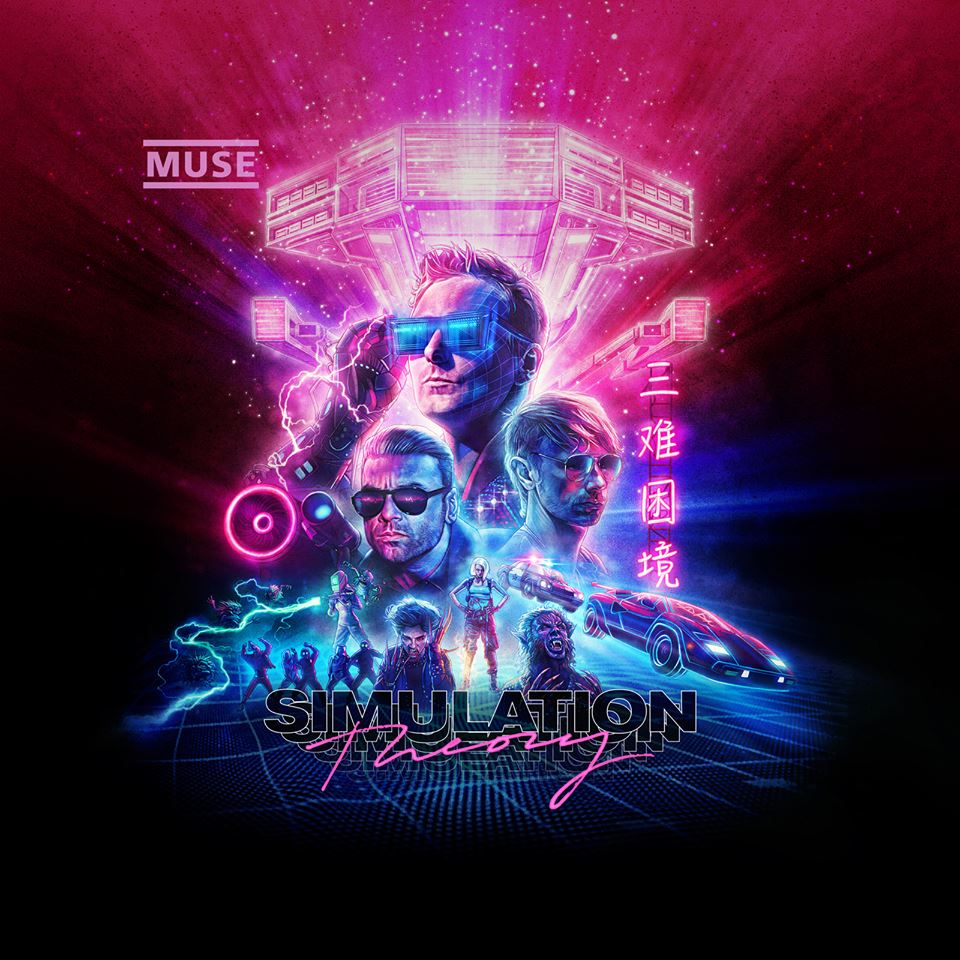
There’s an indescribable level of anxiety that comes with being a Muse fan any time a new album is announced. It’s the heady mixture of excitement, overwhelmingly peppered with fear of the unknown. It’s been a divided fandom for as far back as I can recall, with old-school versus the progressives, and there’s no shortage of opinions forthcoming at even the slightest whiff of new tunes. I have a feeling Muse not-so-secretly enjoy tormenting people. There’s an incessant mind-game as we’re, usually willingly, led down the garden path by Matt Bellamy and Co. as they reveal their latest offerings, only to be dealt a swift u-turn just as you’ve made up your mind about how things are going to sound.
With its distinctive cover art and no shortage of synthesisers, modulators, and distortions, Simulation Theory is a hell of a nod to the 1980’s but, somehow, it’s also as contemporary as hell. I long ago gave up trying to slot Muse into a genre, because I feel they transcend and defy any categorisation. One minute it’s pop, then there’s a hint of Prince which segues into what seems to be a lap slide guitar, and moments later it’s darker and more powerful than your cells can bear.
Having been drip fed five tracks well before the album was released I’d already formed a definite idea of how the album would sound, and it wasn’t this. I thought it would be a fairly commercial collection of pop, which would have been a disappointment, even if I enjoy the tracks on an individual level. Listening to it now, from start to finish, it all makes sense. It may be their most comprehensive work yet conceptually, and there’s a sound on quite a few of the songs that is genuinely exciting. Personally, the stand out tracks are “Propaganda”, “Blockades”, and “The Void”. Each produce a visceral response when I hear them and it’s the same response I have when I’m at one of their shows. It’s a feeling of being consumed by the sound, with it affecting your heart rate and making the hair stand up on the back of your neck.
Matt Bellamy’s voice is getting stronger and clearer every album, and he is still in possession of a falsetto to make your eyes water. Dominic Howard’s drumming on Simulation Theory is absolutely some of his best work to date. When it comes to bass guitar there is nobody on earth who can make a bass sound as simultaneously beautiful and indecent as Chris Wolstenholme, and I am prepared to die on that hill. There are so many brilliant bassists around but that stomach-tightening tone and level of pure growl and grunt of Wolstenholme’s playing makes my lungs feel like they’re clawing their way out of my chest.
There’s nothing subtle about this band or this album. It’s a sensory sledgehammer and they’re masters at wielding it. As with all things Muse these songs will be amazingly bombastic live. All that’s left to hope is that this time around Australia falls within their world tour destinations.
![]()
![]()
![]()
![]()
![]()
FOUR AND A HALF STARS (OUT OF FIVE)
Simulation Theory is available now.
